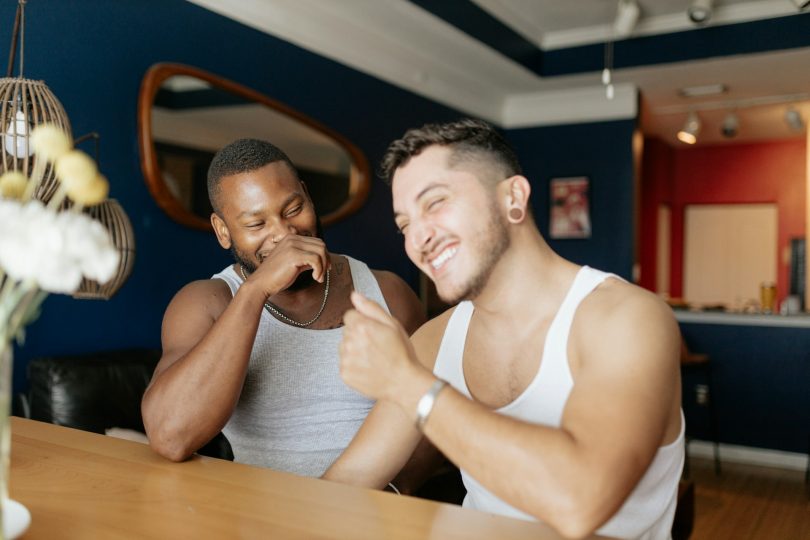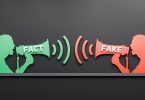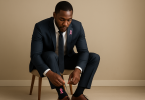Aging gracefully is a universal aspiration for everyone. It encompasses physical longevity, emotional peace, self-acceptance, and a fulfilling quality of life. For Black gay men, this journey is often shaped by a unique constellation of experiences and barriers that emerge from the intersectionality of race, sexual orientation, and aging.
Historically marginalized on multiple fronts, Black gay men frequently navigate systems and societal structures that do not always reflect their lived realities. The cumulative impact of racism, homophobia, and ageism can create additional stress that affect both mental and physical health. These challenges may be compounded by systemic health disparities, cultural stigma surrounding LGBTQ+ identities, and a lack of inclusive eldercare systems that fully understand or respect queer identities.
At the same time, there is tremendous strength and resilience within this community. Black gay men have consistently carved out spaces for joy, love, creativity, and healing in the face of adversity. Therefore, aging is not just a biological process, but a profound opportunity for growth, reflection, and legacy-building. It is a stage of life where wisdom deepens, identities evolve, and the power of self-definition becomes even more essential.
To age gracefully as a Black gay man requires a comprehensive, holistic approach to health and wellness. It is a stage in life that honors the fullness of your identity and prioritizes care across mind, body, and spirit. It means finding supportive healthcare, nurturing mental health, building meaningful relationships, and tapping into culturally relevant community resources.
Embracing Physical Health
As we age, maintaining physical well-being becomes not just a goal, but a cornerstone of living fully and vibrantly. For Black gay men, whose health may already be shaped by disparities in care and access, a proactive approach to physical health is vital.
Regular physical activity is one of the most effective tools for preserving vitality. Whether it’s walking, swimming, yoga, or strength training, consistent movement enhances cardiovascular function, improves flexibility, and supports bone and muscle health. It also plays a critical role in mental wellness such as boosting mood, reducing anxiety, and sharpening cognitive function. Research has shown that many older gay men view exercise as a way to maintain not just physical health, but also a sense of youthfulness and self-esteem in a world that often idolizes younger bodies.
Nutrition is equally essential. A well-balanced diet filled with whole grains, nutritious fruits and vegetables, lean proteins, and healthy fats fuels the body and protects against chronic illnesses like diabetes, heart disease, and hypertension. Reducing processed foods and sugars, staying hydrated, and practicing portion control can make a meaningful difference in long-term health outcomes.
Equally important is routine and responsive healthcare. Regular check-ups, screenings, and open conversations with healthcare providers can lead to early detection of health issues and more personalized care. Unfortunately, many Black gay men have encountered discrimination within medical systems. Building relationships with culturally competent providers who respect and affirm one’s identity is critical. As Dr. Jarrod Carrol aptly notes, aging well isn’t about being free from chronic conditions, it’s about facing health changes with informed support, early intervention, and ongoing care.
Prioritizing Mental Well-being
Mental health is a vital pillar of overall well-being, particularly for Black gay men who often face a complex web of societal pressures. Discrimination, both racial and homophobic, along with internalized stigma and cultural expectations, can create persistent stress that takes a toll over time. These challenges often show up in subtle, internalized ways that impact self-worth and emotional resilience.
For many, the path to healing begins with acknowledging these pressures and seeking support. Therapy, especially with culturally competent and LGBTQ+-affirming professionals, can provide a safe space to process identity-related stress and develop healthier coping strategies. Likewise, mindfulness practices such as meditation, journaling, or spiritual reflection offer grounding tools to navigate daily life with greater clarity and peace.
Studies have consistently shown that older Black gay men who maintain a strong connection to their sexual identity and community experience better mental health outcomes. Community matters. Whether it’s through peer support groups, cultural events, or virtual forums, having a network that affirms your identity can reduce isolation and foster a sense of belonging.
It’s also important to recognize how certain ideals within LGBTQ+ spaces especially those that prioritize youth, beauty, and body image can affect self-esteem. These unspoken standards often marginalize older individuals, making them feel invisible or less valued. Challenging these narratives and embracing aging as a process of growth and wisdom is a powerful act of self-acceptance.
Fostering Social Connections
Strong social networks act as protective factors against loneliness and cognitive decline. Participating in community groups, social events, or online forums tailored for Black gay men provides a sense of belonging and support. Organizations like “In The Meantime Men” promote wellness and empowerment within the community. Engaging with peers who share similar experiences fosters mutual support and understanding. Creating and maintaining friendships can alleviate feelings of isolation and promote a positive outlook on aging.
Navigating Healthcare Systems
Accessing culturally competent healthcare is crucial. Black gay men may face barriers such as discrimination or lack of understanding from healthcare providers. Advocating for oneself by seeking out LGBTQ+-friendly and affirming healthcare professionals ensures better health outcomes. Utilizing directories and resources that list such providers can be beneficial.
Regular screenings and preventive care are essential. Staying informed about health risks prevalent in the community, such as higher rates of hypertension and diabetes, allows for early intervention and management.
Engaging with Community Resources
Numerous organizations offer resources tailored to the needs of Black gay men. For instance, Black Gay Men’s Wellness Month focuses on empowering individuals to take charge of their well-being through healthy lifestyle choices. Additionally, support groups provide spaces to share experiences and access information on health and wellness.
Online platforms also offer valuable resources. For example, THRIVE SS supports Black gay and bisexual men through social events and online forums, fostering a sense of community and shared experience.
For more reading:
https://www.verywellhealth.com/hiv-support-groups-11678505
https://www.frontiersin.org/journals/psychology/articles/10.3389/fpsyg.2024.1369021/full








